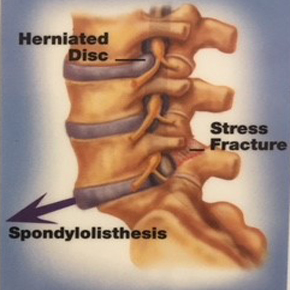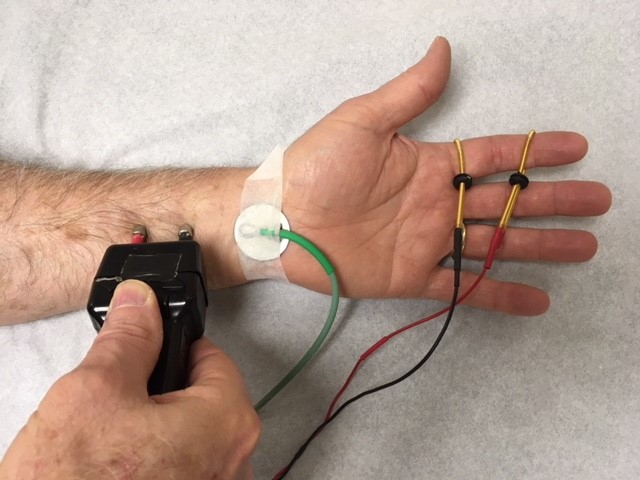Educational Information
PHYSICAL MEDICINE & REHABILITATION CENTER IN CLINTON TOWNSHIP, MI
Additional Information Links
What Is Physiatry?
Spinal Health Information
Herniated disc
Sometimes called a “slipped or ruptured “disc or sciatica, disc herniation is very common and can occur in both lower back and neck. When untreated, this can become a very serious condition often requiring surgery. If treated aggressively early on, this can be resolved successfully with physical therapy.
Anatomy
Disks are rubbery pads found between the vertebral or bones that make up the spinal column and act like a shock absorber and also allow the back to bend or flex. The Disc is composed of a thick outer ring of cartilage called the annulus and an inner gel-like substance called the nucleus.
Risk factors
Aging, trauma and overuse can lead to wear and tear of the disc. Conditions that can weaken the disc include: improper lifting and bending, excessive body weight, and especially, repetitive loading activities.
symptoms
Herniated discs put pressure directly on the spinal nerves and are usually associated with pain that is usually dull and achy but can also be sharp, and occur throughout the neck or back and can often extend down the arm or leg. They can also be associated with weakness in the arm or leg and or numbness and tingling in the arm or leg as well.
Diagnosis
Comprehensive medical history and physical examination by a Physical Medicine and Rehabilitation specialist is essential and is usually accompanied by electrodiagnostic studies (EMG) that can precisely identify the extent and severity of the pinched nerve, and an MRI that can define the extent of the herniated disc.
Treatment
Most neck or back pain can resolve with simple measures especially when applied early. They include, rest and anti-inflammation medication along with heat, and if these measures fail, then appropriate use of physical therapy incorporating: deep heat, range of motion exercises, traction and gradually increasing strengthening exercises.
Neck and low back pain
Almost everyone at some point in their lives will experience significant neck and back pain. It is the most common reasons people see doctors. Usually the symptoms are short-lived however anything that lasts longer than three weeks deserves medical attention.
Anatomy
The neck and back is made up of vertebral bones, disks that act like shock absorbers between the vertebra, a thick layer of ligaments encapsulating the spine and finally, several layers of large muscles that provide the support and function of both the neck and back.
Causes
Neck and back pain have many causes with the most common being overuse and repetitive activities that injure the tendons and muscles in the neck and back. “Wear and tear” and the aging process can cause degeneration of the vertebra, facet joints and disc causing neck and back pain and when significantly present, can cause a spinal stenosis or narrowing of the space around the spinal cord and canals that allow the nerves to pass into the arms and legs. Additional causes much more significant can involve a herniated disc explained in another section.
Symptoms
The predominant symptom is that of soreness or pain usually dull, achy and intermittent in nature, but occasionally sharp and incapacitating. Stiffness, loss of motion and function are usually present as well. Pain, numbness and tingling and weakness if present in the arms or legs indicates that a herniated disc may be present in is a much more serious condition. Pain is generally worse with bending twisting and lifting as well as prolong stationary activities, and repetitive motions.
Diagnosis
The most important way to adequately diagnose neck and back pain is a complete and comprehensive medical history and physical examination by a specialist in Physical Medicine and Rehabilitation. Additional testing is usually not necessary other than a standard x-ray.
Treatment
Treatment options usually involve: local heat, stretching exercises, restriction of strenuous activities, as well as anti-inflammation medications when needed. If these measures are not successful , then a comprehensive physical therapy program can be used to speed up the recovery process.
Electromyography (EMG) and nerve conduction studies (NCS)
Electromyography (EMG) and nerve conduction studies (NCS) are electric diagnostic tests designed to provide information on muscles and nerves. At Wellness, theses tests are done by Dr. Brennan, Board Certified in both Physical Medicine and Rehabilitation and Electrodiagnostic Medicine.
Reason to perform the tests
EMG-NCS Are the primary test medicine has to obtain precise information on the health of muscle and nerve tissue including the spinal cord. The tests are usually done when the following signs and symptoms occur such as: persistent weakness in the arm or leg, persistent numbness and tingling in the arm or leg, persistent cramping twitching or spasm in the arm or leg. EMG-NCS studies can detect if muscle weakness or numbness and tingling is due to a generalized nervous system disorder, injury to a nerve coming from the spinal cord, injury to a nerve attached to the muscle or true muscle diseases. EMG-NCS Studies can help rule out or diagnose a variety of conditions such as: 1) Nerve root disorders such as radiculopathy 2) peripheral nerve disorders outside the spinal cord like carpal tunnel syndrome and peripheral neuropathy related to diabetes, 3) progressive muscle disorders like muscular dystrophy and poly myositis, 4) disorders that affect muscle and nerve connections such as myasthenia gravis, 5) diseases that affect the nerve cells in the brain and spinal cord like ALS.
Performance of the tests
EMG-NCS Studies take approximately 20 to 30 minutes and are done in the office on a comfortable table with the patient lying down after a brief history and physical have been done. Each test consists of two parts.
Nerve conduction studies (NCS)
Stimulating electrodes providing a very low level electrical signal are placed over the nerve of interest and a recording electrode is taped over the muscle that the nerve controls. This signal feels like a gentle quick shock (like gently hitting your “funny bone”) and the speed and character of the electrical impulse is recorded by the recording electrodes. The impulses appear as waves the doctors monitor and can be immediately interpreted.
Electromyography (EMG)
Done following nerve conduction studies (NCS), this part of the test is usually very quick and electrical signals from the muscles are picked up with the insertion of a very small acupuncture- like pin that goes just under the skin (feeling like a mosquito bite) and these signals are translated into waves on a monitor and sound on a speaker to be able to detect abnormalities immediately. Following the total testing, Dr. Brennan will give you the results of his analysis of the tests and how it relates to your symptomatology and effective treatment options.



